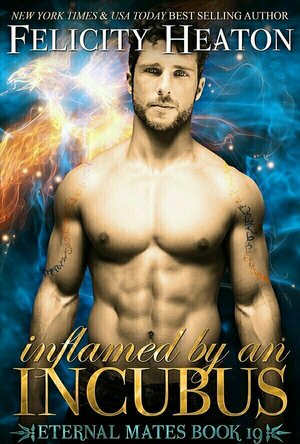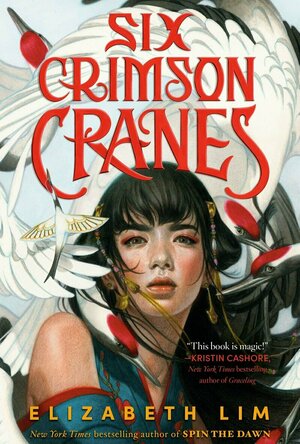Locomotive Recollections: No 45596 Bahamas: 84
Book
LMS engine No.5596 was constructed at the Queen's Park works of the North British Locomotive Co in...
LilyLovesIndie (123 KP) rated A Time of Myths in Books
Nov 5, 2018
It seemed perfect, and when I received it I was eager to get started, but then I hit what I thought would be a huge stumbling block for me. It was right up my street with regards to the content and genre, but when I started to read I initially struggled with Blamires' style of writing. He switches perspective initially to introduce all of the main characters, which, in someone with less talent would be confusing, however Blamires does this with a certain skill which weaves the separate narratives together into one intertwining story of humanity at it's grittiest and most basic level.
Initially set in the mid 80s, the mystery set and questions begin to swirl in the readers head before jumping into the next 'book'. As the story progresses, in a very natural and well written way, we follow this intertwined story of a group of youngsters from the age of free love, flower power and smoking dope, of course, I'm referring to the 60s for those of you scratching your heads! The description and atmosphere created by Blamires in describing the Woodstock festival is admirably done, and as someone who only knows of 'hippies' from watching reruns of bad tv shows and my own limited cultural knowledge, I have to hold my hands up and say I'm no expert. However, it felt utterly believable and very much in line with my limited knowledge, so much so that at times I actually felt like I would have loved to be part of this group of people.
Again, the book returns to the modern day of the 80s, told from the perspective of Nathan, the character who seems the most likeable and least tragic of the group, but oh how that changes! I won't spoil it, but his perspective is fantastic and easy to read, and he is a very believable character. You want to help him uncover his past and in the process find out exactly what happened to the rest of the group as, if there isn't enough that Blamires does well, he is also fantastic at drawing you totally into the story and keeping you guessing right to the very end, truly engaging you with every character. Well, except Derek, he simply repulsed me and I was glad with his ending!
The final 'book' was fantastically written, full of the same atmosphere and drama seen in the rest of the story, but also neatly tidying up all, well, nearly all, the questions you ask throughout the story, whilst still delivering the drama and tension you have come to expect from the book so far. Again, Blamires tells it in a very believable and engaging manner, and I think the greatest strength of this story is that it is so believable, I actually found myself wondering if there weren't groups of people just like these out there today as lost as Nathan and Maddy are in this 'hellhole' of a world we live in.
Great credit has to be given to Blamires in the creation of this story as it is truly fantastic. The characters are engaging, in their own ways, real and so easy to relate to. I wanted so badly to be their friend, to help Jo with her inner turmoil, to fix the issues they all had, and more than anything to have been part of that group at Woodstock having a laugh with like minded people. It transported me to times and places I will never be able to experience, but through this book, I feel I have, in some small way, been able to experience a tiny ounce of what it may have been like. The story was never superficial, at times it is really philosophical and 'deep', and this is absorbed by the reader without really noticing it, but at the end, it al makes sense.
Chris Blamires is a hugely talented author, great story teller, deep thinker and all of this comes through in just over 300 pages of excellently written tales. I thoroughly enjoyed this book, as I think is clear, and it is one I look forward to reading again and recommending to my friends. And as for the author, well, he certainly is one to watch and I look forward to reading more of his work in the near future!
Veronica Pena (690 KP) rated Click (2006) in Movies
Apr 21, 2020 (Updated Apr 21, 2020)
Needless to say, I liked this film. Obviously it's cheesy and a bit dumb, given that it's an Adam Sandler film, but I still enjoyed it. It pulls at the heartstrings, makes you laugh, it's a feel-good that will make you feel good.

Today Weather - Forecast
Weather
App
Today Weather is a beautiful & simple-to-use weather app that provides the world's most accurate...

Marley and Me: Life and Love With the World's Worst Dog
Book
John and Jenny were just beginning their life together. They were young and in love, with a perfect...

NFL Blitz by Panini
Sports and Entertainment
App
NFL Blitz from Panini is an officially licensed trading card and collecting app of the National...
Merissa (13749 KP) rated Inflamed by an Incubus (Eternal Mates #19) in Books
Feb 16, 2022 (Updated Jul 3, 2023)
This book covers a long time period and, as such, overlaps with some of the other books. This made it a great read as the author definitely didn't drop the ball! We get a fully fleshed-out, intricate story, with different timelines woven together to create a plot hole-free story that kept my interest from beginning to end.
I will say what a horrible curse Drystan gave them! Pure evil. And my heart broke for Fenix. As always though, there are unmated characters mentioned that pull at my interest with the hints dropped. I can't wait for their stories! Plus, it's always a bonus to catch up with other mated pairs, just so I can get my HEA fix of them.
A great addition to the series, I thoroughly enjoyed every word and have no hesitation in recommending it. PLUS, Kissed by a Dark Prince (https://books2read.com/u/bpwdn6) is #FREE right now, so why not grab that and start from the beginning? If you love Paranormal Romance then I can guarantee you'll be hooked!
** same worded review will appear elsewhere **
* A copy of this book was provided to me with no requirements for a review. I voluntarily read this book, and the comments here are my honest opinion. *
Merissa
Archaeolibrarian - I Dig Good Books!
Feb 16, 2022

King of Dragon Pass
Games and Entertainment
App
Create your own epic saga of conflict, mythology, and community! This acclaimed game of magical...
Lottie disney bookworm (1056 KP) rated Six Crimson Cranes in Books
Jun 17, 2021
Where do I start?
Wow!
In a kingdom which has banned magic and banished all demons to the Holy Mountains, Princess Shiori must hide her magical blood from those around her, in particular her six brothers, her mysterious stepmother and her father, the Emperor.
However, when a combination of magic and stubbornness derails Shiori’s betrothal ceremony the princess discovers that she is not the only family member hiding their gift. After spying on her stepmother, Shiori is convinced that her father’s wife is a demon and turns to her brothers…with disastrous consequences.
With her six brothers transformed into cranes, Shiori is alone, cast far away from the palace and forced to remain mute: for every word she utters, one brother will die! She is also unrecognisable, her magic is locked and she cannot reveal her past to anyone. Powerless, abandoned and mute- can Shiori save her six older brothers and return home to defeat her stepmother?
Shiori herself is an amazing protagonist. She is young, impulsive, stubborn but also has the biggest heart. Her love for her brothers (and food) is integral to her personality and the comfort she takes in the memories of her mother is beautiful.
Initially, Shiori’s life may appear to be a fairytale with extravagant robes and magnificent palaces. Maybe that is why Lim creates a fairytale-worthy curse? With a lost voice, a lost pink slipper and a city put to sleep, Elizabeth Lim certainly showcases some of the magic we saw in her Disney Twisted Tale novels.
Shiori’s journey to save her brothers is one of tremendous bravery and courage and it is along this path that the princess truly discovers her inner strength. She also matures immensely (it’s probably inevitable when your stepmother curses you) but Shiori experiences the hardships of the world around her, learns who to trust and realises that sometimes poison (or a curse) can be a “medicine in disguise”.
The supporting cast within Six Crimson Cranes are also incredible. Seryu the dragon prince with his ruby eyes and green hair clearly cares for Shiori. Will he try to sway her affections in book two? He will have to compete with Takkan, the loyal, picture-perfect prince who protected Shiori when no-one else did, long before he knew her true identity.
Shiori’s stepmother, Raikama, was possibly the most complex character. Despite only being present at the beginning and end of the novel, she spends 90% of the book as a villain – and the reader is fully on board with this! However, Lim’s ingenious use of Shiori’s faint memories help her piece together an unfathomable puzzle: why would Raikama curse the siblings instead of killing them? Is this linked to her stepmother’s magic and her mysterious past?
The world building in Six Crimson Cranes is magical. Without breaking the flow of the novel Lim perfectly creates the kingdom of Kiata in our minds, from the manicured grounds of the palace during the Summer Festival, with kites bobbing against azure skies, to the bleak but beautiful Iro, overlooked by Rabbit mountain, glittering in the light of the silver moon. Elizabeth Lim truly transports her readers to these beautiful but dangerous landscapes.
Six Crimson Cranes is a book which surpassed all my expectations. The world building is as magical as its fairy-tale undertones and the characters already feel like old friends. I don’t think I can wait another year for the sequel!
Thank you so so much to Netgalley for providing this amazing opportunity! I received a free digital copy of this book in exchange for an honest review…and now I’m off to pre-order the real thing!

Magic Jigsaw Puzzles
Games and Entertainment
App
Discover a colorful world of jigsaw puzzles that fits in your pocket! This daily updated collection...



